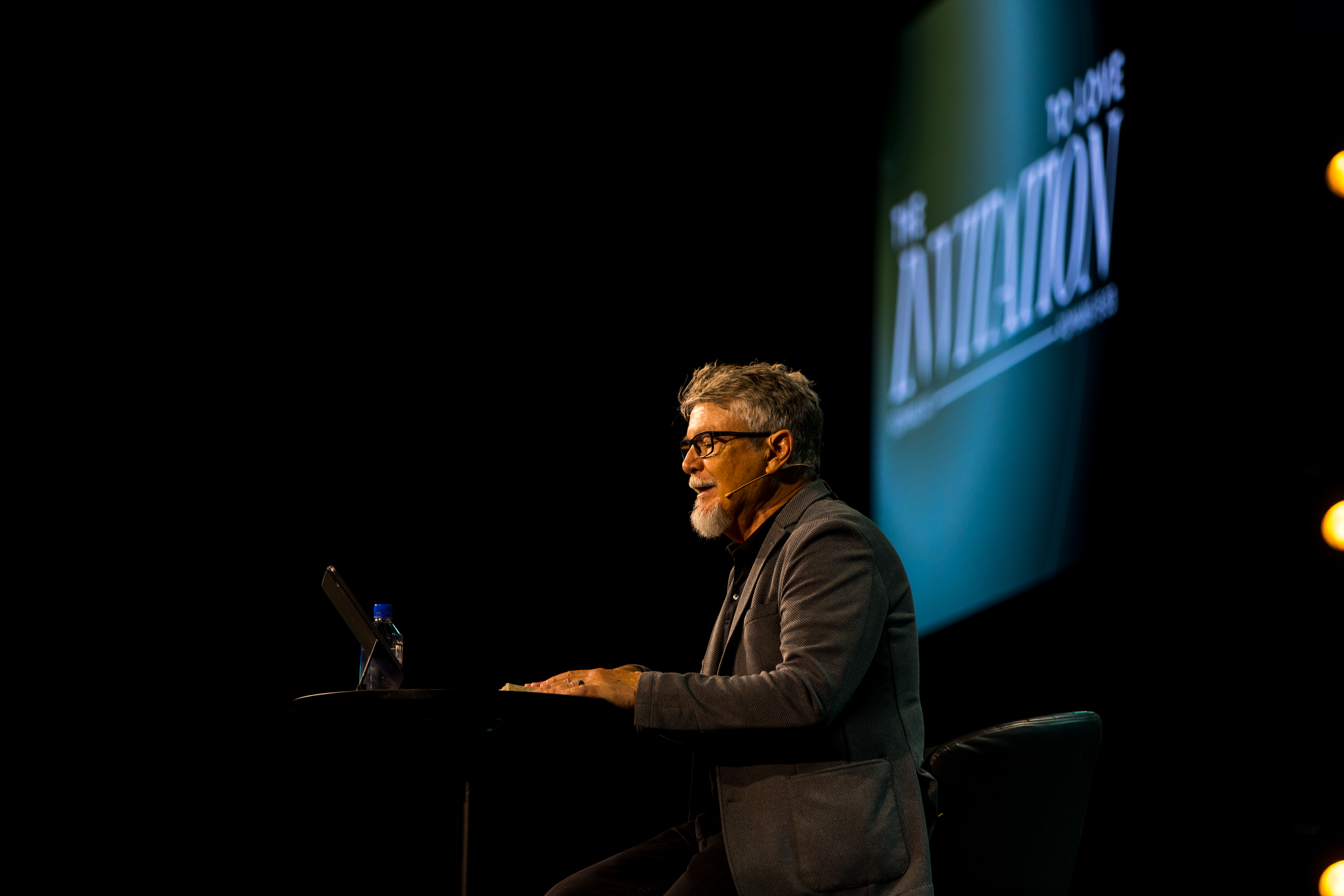It’s not wrong to have dreams, plans, and desires, but God’s way may include detours that lead us to His ultimate goal and purpose.
July 28, 2023
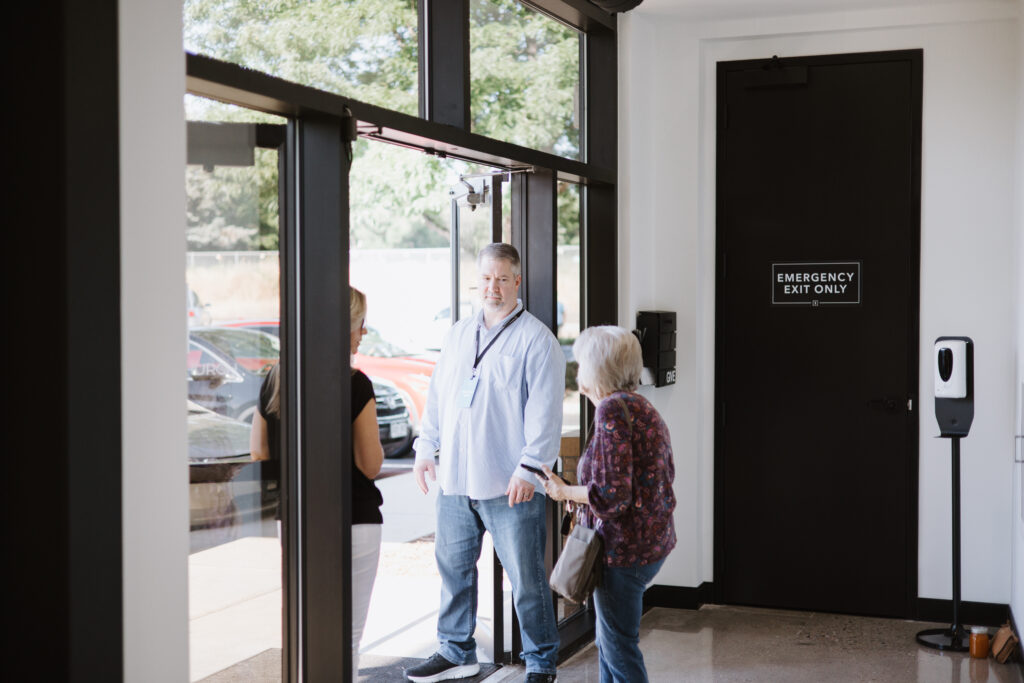
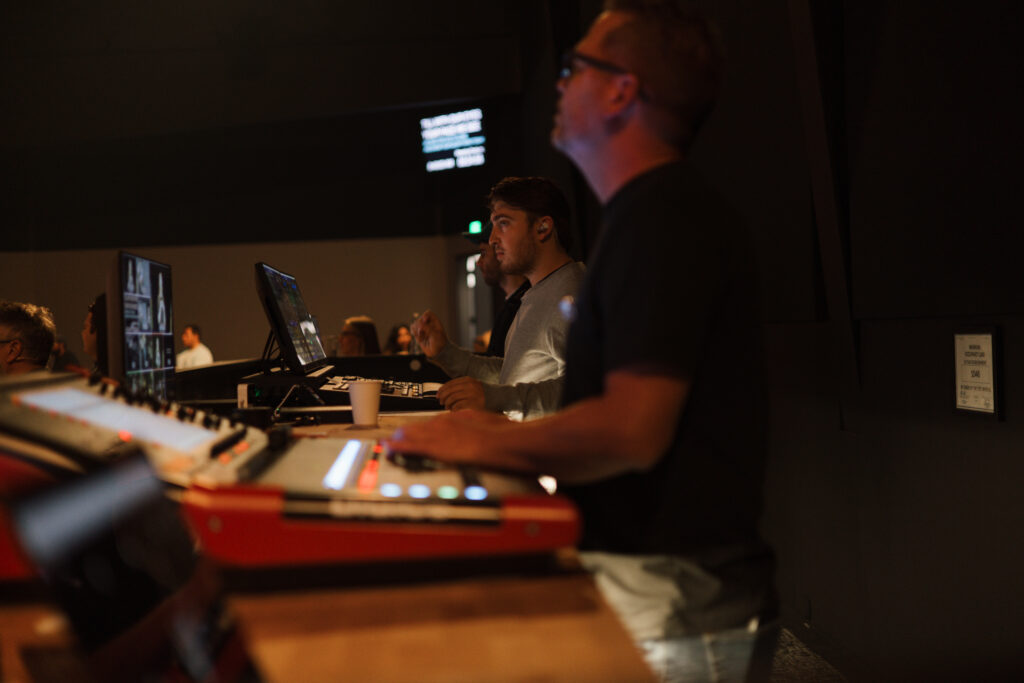

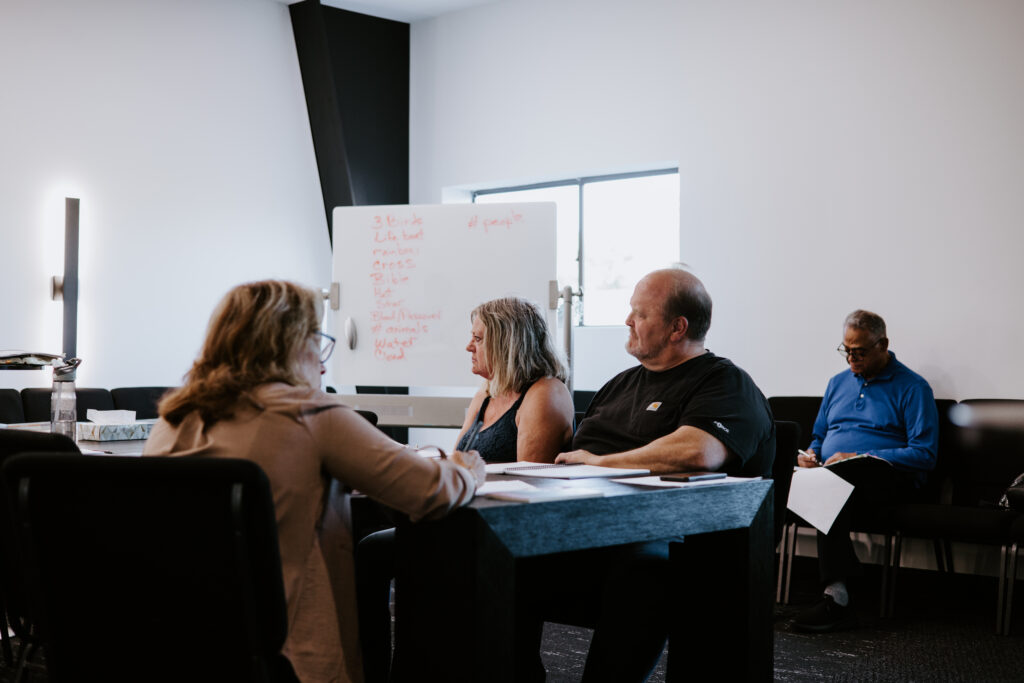

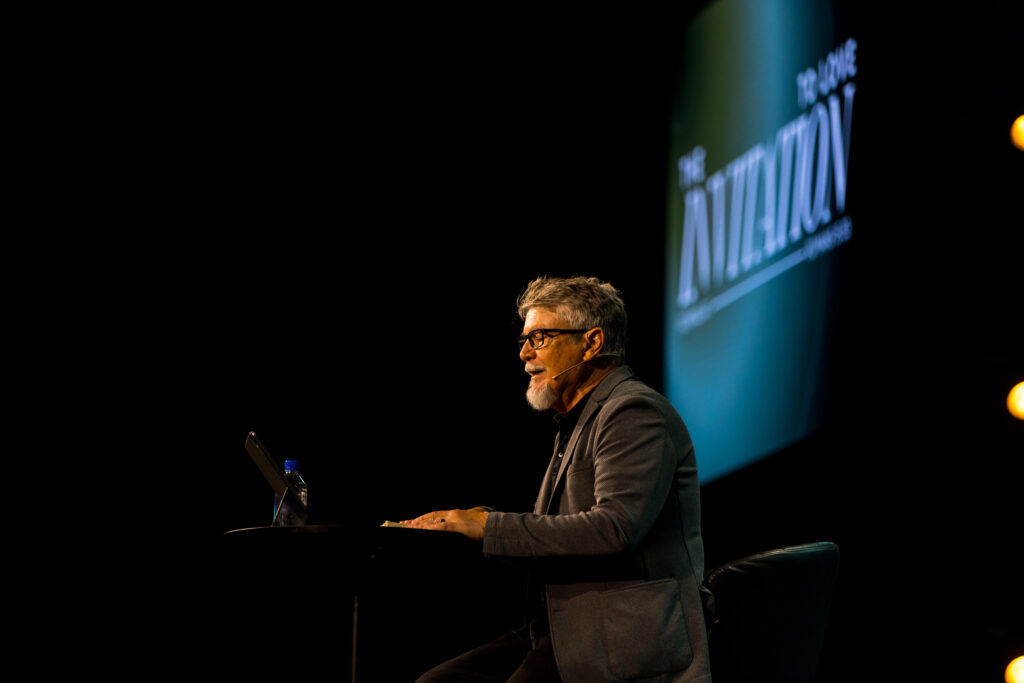
Speaker: Gary Peters
Passage: 15:23-33
Adding Context To Paul’s Life
We’re going to continue through the book of Romans in the next few weeks. Lord willing and the Saints don’t rise, we will finish the book. I’m going to begin with verse 20. I think it’s important that we understand the context. Paul says, “My ambition has always been to preach the Good News where the name of Christ has never been heard, rather than a church where already something has been started by somebody else.”
Paul was a true apostle, one sent by God. He loved the fact of establishing new works. He was a church planter at heart. He says, in verse 22, “My visit to you has been delayed so long because I’ve been preaching in these places. But now, after I finished my work in these regions and after all these long years of waiting, I am eager to visit you.”
He’s writing from Corinth, and around 57-58 AD to the Roman Church. He hasn’t visited them yet. “I’m planning on going to Spain, and when I do, I will stop off at Rome. And after I’ve enjoyed your fellowship for a little while, you can provide for my journey. But before I come on, let’s go to Jerusalem to take a gift to the believers there. For you see, the believers in Macedonia have eagerly taken up an offering for the poor among the believers in Jerusalem. They were glad to do this because they feel they owe a debt or an obligation to them since Gentiles received the spiritual blessings of the Good News from the believers in Jerusalem. They feel the least they can do in return is to help them financially. As soon as I have delivered this money and completed this good deed of theirs, I will come to you on my way to Spain. And I’m sure that when I come, Christ will richly bless our time together. Dear brothers and sisters, I urge you, in the name of the Lord Jesus, to join in my struggle by praying to God for me. Do this because of your love for me, given to you by the Holy Spirit. Pray that I will be rescued from those in Judea who refuse to obey God. Pray that believers there will be willing to accept this donation that I’m taking Jerusalem, and then by the will of God, I will be able to come to you with a joyful heart and will be an encouragement to each of you. Now may God who gives us His peace be with you all. Amen.”
Paul closes this book twice. Once in chapter 15. Once in chapter 16. A true teacher of scripture. How many have heard somebody say, “I’m going to close with this,” and then they go another 15 minutes? So if I do that I’m in good company.
What we see in this is there are three big ideas at the end of chapter 15. I’m going to spend two weeks on them because I think they’re very big ideas. We’re going to continue this message next week.
Number one, we see the idea of clarity of God’s guidance. The second thing we see is believers’ generosity, which we’ll cover next week. The understanding of us being generous people. Thirdly, we see the necessity of prayer. It amazes me that the apostle Paul is asking a church he’s never met personally to pray for him. I always see your missionaries say, we would love your gifts, but we especially want your prayers. The understanding is, you’re going to help me financially when I come, you just don’t know it yet. He says, When I come, you’re going to help me with my journey to Spain. But secondly, and most importantly, I want you to pray for me.
Historical Understanding
I want to give you some historical understanding. I love history. I geek out at stuff like this. I’ve always been able to remember dates, times, how many people died in battles, who the generals were, what the circumstances were, and other facts. I remember where stuff’s at, which is a gift, and how I remember Scripture so well. If you give me science or math, forget it. I’m dead in the water. But if you give me history, social studies, or geography, I got it.
The apostle Paul wrote the epistle to the Romans from Corinth, as I’ve already mentioned, around 56 or 57 AD, approximately 25 years after the resurrection of Christ.
He was in Corinth at the time and had not yet made his last trip to Jerusalem, which he talks about, which is part of his third missionary journey. He is arrested in Jerusalem. You find that in Acts 21 through 23.
Paul’s life is threatened, and to protect him, the Romans sent him to Caesarea where he appeals to Caesar because he’s a Roman citizen. There he’s under house arrest for two years. He was free to come and go, but it would be like having an ankle bracelet today.
This brings us to around 60 AD and the end of the book of Acts. After the Roman imprisonment, he is sent by the Romans on a grain ship from Alexandria — which was the breadbasket of the Roman Empire in Egypt — with a bunch of prisoners to Rome. In September of 59 AD, they set sail for Rome, and he arrived in Rome in the spring of 60 AD. There’s a reason why I’m telling you all this.
Paul remained in custody in Rome under house arrest for two more years. This brings us up to early 60 AD. Some of these dates they don’t know for sure. Some people say he died early in 63. I think it was probably later and maybe 65-67.
At the end of the book of Acts, after Paul’s imprisonment in Rome, he is released for a period of time. That’s when they believe he went to Spain. There is some controversy on that because we don’t have historical records. But early church fathers said it did happen, especially Clement.
He was freed as he said he was going to be in Philippians 1:25. Following his release at the end of the two years — a brief time of freedom — he goes to Spain, and he encourages the churches that he established around the Mediterranean area.
Between 62 and 65 AD, he seems to have brought the Gospel to Spain. Then either he was arrested in that region or he comes back to Rome, and Rome was now ruled by somebody called Nero, who was an absolute tyrant. He was a wicked, wicked, wicked individual. That’s who Paul tells Timothy to pray for, by the way. We know very little about it, but he was then rearrested, and then he wasn’t under house arrest. He was in chains.
That is at the end of his life, and he writes one more letter, the book of Second Timothy. That’s where he says, I’m getting ready to be poured out as a drink offering. I know in whom I have believed. I know that he’s able to keep that which I persuaded. I fought the fight. I’ve kept the faith. All of those scriptures are from Second Timothy.
Then he is beheaded by Nero because he is a Roman citizen and can’t be crucified. Unlike many of the other apostles who weren’t Roman citizens and were crucified. Peter, historically was crucified upside down. Think on that one for a moment because he says he wasn’t worthy to be crucified like his Lord. That is the historical record of what we’re talking about. The first one of the three principles we mentioned at the beginning is this: we all struggle at times with understanding the guidance of God.
The Guidance Of God
Do you know what happened to me this week? I was preparing because I took the staff through a very encouraging book, the book of Amos. If you haven’t read Amos lately, you should. You’re going to see Amos one day, and you want to say you read his book. He’s one of those minor prophets. I don’t want to go to Obadiah and say, OB, I never read your book, but I heard it was in the Bible. Obadiah is only one chapter, and Amos is nine.
At the end of Amos, he says, God, I want a place where I can put down roots. Give me a house. Give me a land where I can finally be settled.
In 2014, Karen’s mother died in the spring of that year. We went down to Texas from California to pick up some things that summer that were in storage. We came back up through the state of Colorado. Greg, knowing we were going to be here, asked me to teach on a Sunday. I was sitting on their deck reading the scriptures and I was reading Amos. I read it more than once.
I dated in my Bible, 8-17-2014, “God, you’re going to give us a place where we can put down roots, and it’s going to be home for the rest of my life.” Four years to the day, we pulled into Fort Collins to move here. That’s what I’m talking about.
Did it all happen like clockwork? No, those four years in between were hard times. The one redeeming factor is we were with our kids and grandkids. Matter of fact, when I pulled into Fort Collins, I was incredibly grieved and sorrowful for one reason, because we’re leaving our family. Now they’re all here with us. God bless the Lord. Amen.
The fact is, those four years weren’t like I predicted or planned. I pastored a church for a year and a half in San Francisco. We did some other things. I traveled to Norway to preach the gospel. Those were the highlights. There were a lot of twists and turns.
Our desires and our sense of God’s directive and our reality of that directive many times seem to be in conflict, and they’re not. Loving God and having goals and desires and how life sometimes works out, that is what I call the messiness. Troubling results don’t necessarily mean we miss God or that somehow he has let us down.
There’s a lot of talk now about people deconstructing their faith. I think they’re deconstructing their faith because they think they heard God — which they probably did — but they put all of the points from A to Z and everything in between, God’s going to do. God doesn’t do that according to plan. So therefore God’s disappointed them. So they’re going to get back at God by deconstructing their faith.
Paul had a strong belief in divine providence with an equally strong recognition that one may not, in this life, always understand what God is up to. A very good friend, a pastor that tragically died in COVID, used to always say, “God is up to and unto something.”
Three times we see Paul trying to take the gospel into Asia in Acts 16. It is a turning point in world history because the gospel was not taken into Asia. It was taken into Europe, but it was taken into Europe as Paul’s trying to take it into Asia. Then he has a dream or a vision of a Macedonian man saying come on over to help us. He takes a boat and goes over to Greece. The rest is history.
There are certain turning points like that in our lives. There’s a scripture in First Samuel chapter 14. The Israelites are being tormented by the Philistines, and Jonathan and his armor-bearer, like all the armies of Israel, are hiding in caves. They’re scared — as my dad used to say — spitless. If you put two words together, afraid and scared, you get ascared. It’s not a word, but it’s a good word. They were ascared. They were very ascared.
When they’re in these caves, Jonathan finally gets the revelation, what are we doing in this cave? They’re the pagans. We’re the ones that have God behind us. He says this, “‘Let us cross to the outpost of those pagans,’ Jonathan said to his armor-bearer. ‘Perhaps the Lord will help us. For nothing can hinder the Lord. He can win a battle whether He has many warriors or only a few.'”
As a matter of fact, most of the time, you see in Scripture, God wins battles with few so that man can’t get the glory. This “perhaps” of the Lord, should govern our life. I wish there weren’t “perhaps” in your life. I wish there was a thus saith the Lord and you knew absolutely that God was going to do that. Sometimes He takes us through a route that we wouldn’t necessarily take. There are dreams God allows us to dream. In order for us to live out that dream, we may accomplish it. But almost without realizing it, the crucial thing we end up doing is what God intends us to do.
God Answers Prayers In Unforeseen Ways
The dream wasn’t wrong. How many have some unanswered prayers? How many have had prayers answered in ways you didn’t expect? How many are tired of telling God how to answer your prayers? How many of you still do it? We all do.
Paul achieved the desire to visit Rome but by unforeseen means or circumstances. His journey to Rome was longer than two years and it included house arrest and a six-month boat trip where he was shipwrecked, bitten by a viper, and left for dead. How many want to serve Jesus? It’s a fact.
I put in my notes, the encouraging last eight years of Paul’s life. I realized again by studying this text and understanding the history. Paul’s ministry lasted about 30 years. Who else’s ministry lasted about 30 years? Jesus.
We think sometimes that we have this, this, and this. That God’s going to do this. And We’s going to allow us to live this long. And this is going to happen. And then something happens called life where we don’t understand what God is doing. A two-year house arrest, followed by a six-month voyage on a grain ship with a bunch of other prisoners.
Due to Paul’s continued drive, though, to preach the gospel in lands that have never been established. Think about that. He went places that no other person had ever gone to share the gospel. I believe that part of God’s plan for Paul was to place him under house arrest. So that he could write the epistles that we call the prison epistles. Those Galatians, Colossians, Philippians, Ephesians, First Timothy, and Titus? Paul was such a driver. He was such a mover. He was such a shaker. He had these desires. I want to go where nobody else has gone.
God says I want you to go where nobody else has gone. But it’s going to go in written form rather than you stepping on that turf. Think about all of the churches and places the gospel has gone, that it’s never gone before because somebody had the book of Ephesians, and they lived the book of Ephesians, Colossians, Philippians, Galatians, or the pastoral epistles of Timothy and Titus.
How many pastors have been encouraged by those books? Now Paul’s work is going on for centuries and millennia because you and I now have the scriptures. Yet he was thinking I’m going to Rome it’s going to be a piece of cake. I’m going to Jerusalem to drop this gift off. Then I’m going to hop on a boat, I’m going to come see you, and then I’m going to stay there for a while and then when I get to them, they’re going to help support me to get to Spain.
I said it three weeks ago when I taught, and I’ll say it again. None of us know what God is educating us for.
There’s another time in Paul’s life when I believe God slowed him down. He was in Ephesus. They had persecution. So he says, I’m no longer going to be teaching in the synagogue. I’m going to take what I have. And for two years, Paul taught in the school of Tyrannus. It’s the first Bible College we see in the New Testament.
During those two years in the school of Tyrannus, he wrote this: First and Second Thessalonians and at least First Corinthians. Two times through persecution, God settles Paul in a region so that he can write the scriptures, and you and I are so much richer because of it.
If he would have traveled all the time, he would have never had time to write the scriptures. Sometimes God wants you to write the scriptures and live the scriptures, but it’s different because he’s doing something different in your heart. Trust Him.
On the way to Rome from Jerusalem on this grain ship, he had a shipwreck. Some of you need to understand you’ve had a shipwreck. You’ve had a pause in what you think God is doing. It’s been a shipwreck. It’s a train wreck. And yet God is in the middle of your train wreck because He wants to do something different than what you thought. The end is going to be accomplished, but trust Him to do what He’s going to do.
After the shipwreck, he’s gathering up sticks to start a fire and a viper comes out — it’s a pit viper — you die within hours of getting bitten by that sucker. They’re on the island of Malta. The locals say we know there are prisoners on the ship. This guy survived the ocean and didn’t drown, but God’s judgment is coming to him. That’s why he got bit by the snake.
Paul just shook it off. How many times have you been bitten by a snake? I love the story in Kings where Elijah sends out the prophets and says, I want you to build a new school for us. As they were building it, one of them drew the straw and said, you’re going to cook dinner for us tonight.
So he goes out and gathers a bunch of gourds, chops them up, and puts them in a stew. As they’re eating the stew, the first dude that ate it goes, there’s death in the pot. He grabbed poisonous gourds for the stew. Think how this dude felt. He’s just trying to cook a meal for his buddies, and he’s going to poison them.
Then Elijah just grabbed some meal — we don’t know what kind of meal — throws it in the pot, stirs it up, and says it’s fine. I’ve often wondered who was the first one to taste it. Have you ever thought about that?
All of us have had stew that somebody made not to harm us. But it brought harm to us. And when it brought harm to us, it could have killed us. God’s saying here, I stirred it up. I fixed it. I fixed your history. I fixed where you’re at. Now I want you to taste it again because it’s time to trust God again. It’s time to trust God again. That is the Christian life.
Has God disappointed me? Yeah. He has. He’s disappointed me to show me that was not the answer. That thing I put my trust in is not the answer. I’ve been disappointed by things I put my trust in. Thank God I’ve been disappointed. Thank God He’s done those things. Because if not, I would have kept putting my trust in things that didn’t matter and didn’t last. He allows me to go through things in my life to teach me to trust again, because every person that’s walked this planet has had reason to be disappointed in what they think is the leading of God, and He’s going to get you to the end product if you just continue to trust again.
Paul got to Rome. But not the way he thought he was going to get to Rome. He thought he was going to hop on some cruise ship in Jerusalem, sail right into the harbor in Rome, get off, and it was going to be peaches and cream. Everything was going to be hunky dory.
Once he got there in Rome, he was under house arrest again. But under his house arrest, he was able to see visitors. They were able to bring the parchments to him. In other words, Old Testament scriptures. He was able to study. He was able to think. He put together a third of the New Testament for us.
What do we understand about this? How many unreached regions have had churches established not by Paul stepping on the turf, but by the letters which became Scripture? His verses planted churches in Spain. His work of Christ established churches that are no longer in some of those places. Some of the seven churches of Turkey don’t even exist anymore. The scriptures go on through the redeeming church under the power of the Holy Spirit.
Pray For Others
I said there were three things. The last one is please pray for me. We’re going to talk about being generous next week. I believe Paul had an impending doom of what was going to happen. He says, pray for me that I may be delivered from those in Judea.
Paul’s prayer wasn’t answered. At least not the way he thought it was going to be answered.
He was still delivered. But it was delivered by a different means. Do you know how he was delivered? His nephew overheard a conversation that the Jews were going to kill Paul. Paul then takes the message from his nephew and tells the jailer, who in turn tells somebody else who gets to the higher-ups and they say we’ve got to get him out of Jerusalem. We’ve got to send him to Caesarea and he’s going to be in a house arrest, which he didn’t know, for two years.
God answered his prayer. But he answered his prayer differently than I believe Paul thought it was going to be answered. The great Apostle Paul had a prayer answered differently than he thought. I feel like I’m in good company.
I didn’t know when I was in Fort Collins in August of 2014 that literally four years to the date we would pull up in Fort Collins. I didn’t know that was all going to happen. I had a sense that something was going to take place. I’ve lived in a lot of places. I’ve taught in a lot of places. It’s so healthy sometimes to be able to put down roots.
Nobody told me what it was going to be like. Even when we arrived in Fort Collins, it was not always hunky-dory and awesome. We went through a little thing called COVID. Try to pass your church during COVID. Try to help navigate what the Spirit of God is doing during COVID. Unprecedented.
Paul says the power of a praying church is mysterious to me. If I’m being honest, sometimes it seems futile. Yes, I said it. Sometimes our prayers aren’t answered the way we wanted them to be. There are three answers: yes, no, and wait. I would rather have a no than a wait. I’m not very good at no’s or waiting. I’m better at no’s than I am at waiting.
When somebody says hey, will you pray for me? This week I have a test or I’m going to the doctor or I’m facing this or my job is a train wreck. Will you pray for me? Do you realize the power they’re asking you to participate in? I’ve started doing two things. Yes, I’ll pray for you right now.
The second thing I do a lot is put stuff in my phone. Everybody thinks I’m so smart. Thank God that my phone prompts me to pray for so and so, they’re going to the hospital at such and such time. I send them a text and say, “I’m praying for you,” and I do it. It’s not just saying I’m praying for you. I stop, I ask God for what I feel like He’s asked me to pray for, and I pray for that person.
The apostle Paul is asking a church and people he’s never met, please pray for me. He says this: to be rescued from the impending doom, that the offering that I’m taking to Jerusalem will be received. I thought that was interesting until I realized how the Gentiles and the Jews still hated each other and the church of Jerusalem was made up of probably 99% Jews and they were receiving an offering from a 99% Gentile church.
They couldn’t wire transfer money from Macedonia to Jerusalem. They couldn’t get out their debit card and say, here, I’m going to make a payment. They carried bags of coins across hostile territory.
He says that even itself is not going to be enough that they took the offering and that we carried it here. Please pray they receive the offering in the way that it was given. What is God asking you to call out for?
He says that I can, by the will of God, get to Rome. We’ll develop that a little bit more next week. I love the end of this book and I want to close with the power of speaking blessing over you.
Now may God who gives us His peace be with you all. Amen. Yes, I agree. So be it Lord.
I love the passion here. I want you to stand with me. In the way that you want to receive, however that may be, listen to this.
Now may the God who gives us His peace and wholeness be with you all. Now may the God who gives you peace and wholeness be with you all. Yes, Lord. Let it be. That’s what I pray for Vintage. Yes, Lord. Let it be. The God who gives you peace and all blessing and wholeness be with you this week. Yes, Lord. Let it be.
Do me a favor. Read the under Romans 15 before next week so we can all study together. God bless you.
Leave a Reply Cancel reply
the vintage weekly
News, updates, and events sent directly to your inbox every Thursday morning.
Stay up to date with what is going on at Vintage by subscribing to the Vintage Weekly - our weekly newsletter - and downloading the Church Center app. These resources enable us to keep you updated of upcoming events, opportunities, and alerts such as weather cancellations.
SUBSCRIBE TO VINTAGE WEEKLY
DOWNLOAD CHURCH CENTER APP
©2024 vintage city church All Rights Reserved
designed BY Amanda Doherty press, llc
back to top
get the news
Subscribe to the Newsletter
About
Statement of Faith
Our Team
Photo & Video Policy
Prayer Request
Capture Your Miracle
Find us
1501 Academy Court, #101
Fort Collins, CO 80524
970-779-7086
info@vintagecitychurch.com
Thank you for submitting your message. We will be in touch shortly.
